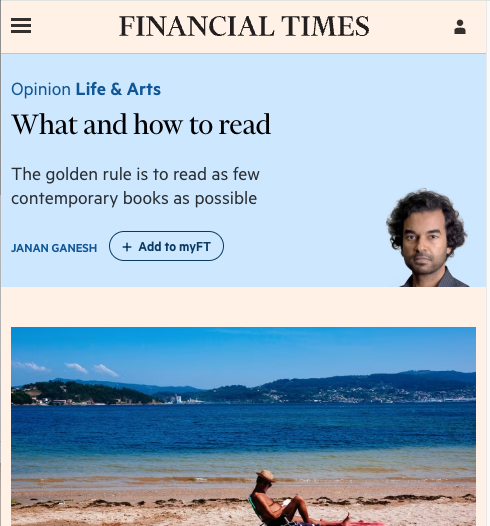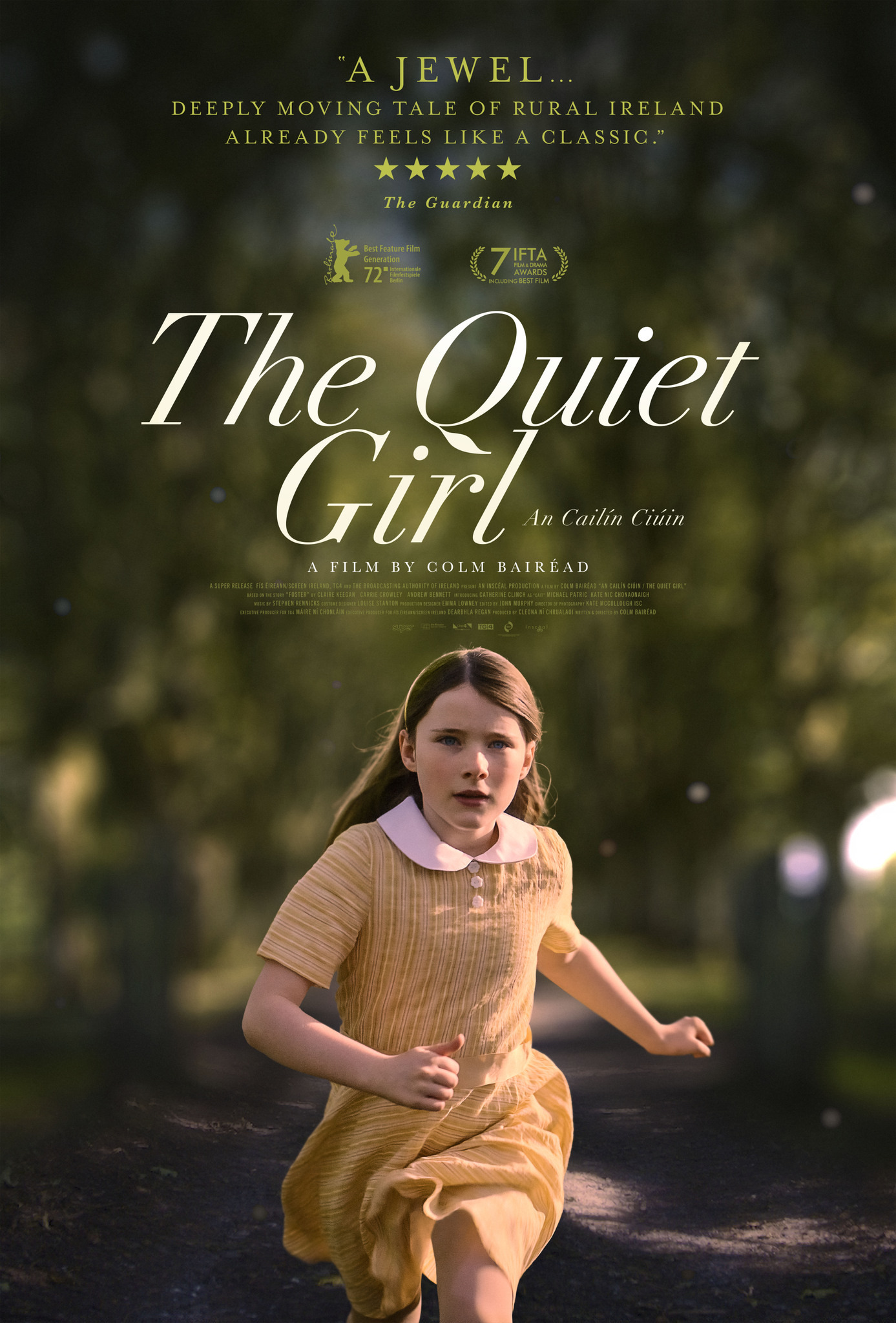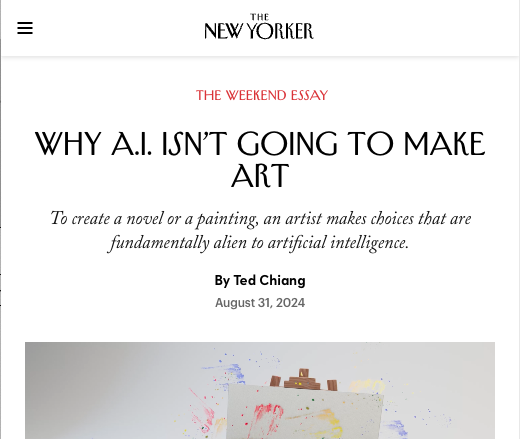Ganesh’s advice is snobby, but it’s not terrible. Books don’t work like other media. It’s complicated.
In a fairly literary online community I’m in, someone shared this article in FT Magazine (archive link). Janan Ganesh writes about “What and how to read”. On first read, this seemed pretty snooty, but I’ve been thinking about it for a while, and I do some of these things without thinking about it. Also, it’s extremely snooty. No different than the tech bro telling you that reading books is a waste of time and you should just listen to podcasts while you intermittently fast, or whatever.
Here’s something worth considering from the piece:
Setting aside “You just pretend to like Dubai, don’t you?”, the question I most often field now concerns the books I read. Well, instead of a list, here is a rule: avoid the contemporary. If a novel has worth, it will still have it in a decade or two. If not, the filtering effect of time — which is imperfect in its judgment, but still the best thing we have — will remove the book from consideration by then.
I read a fair number of new books, but I find the more I read the more I am pulled into reading older stuff. Or at least I thought that, so I looked it up on the Goodreads stats:

The chart maps the publication year vs year read. The lower the dot is on the graph, the older the book (the lowest one is The Collected Tales of Nikolai Gogol if you’re wondering). A larger proportion of my reading is indeed older books (as in, more than 10 years old or older). Most of my favourite novels are old (Labatut and Towles notwithstanding). At the same time, that comes with reading more.
It’s clear Ganesh reads a ton. An afficionado of anything appreciates something different about it than a generalist.
And reading is also a social thing. The zeitgeist is good, actually, and having read the new Keanu Reeves/China Miéville book, or All Fours, or Banal Nightmare has led me to some good conversations. It’s good to be up on your culture if you plan to leave your ivory tower. Detransition, Baby wouldn’t have been widely available 20 years ago.
The other part of Ganesh’s piece I nodded at was this:
Don’t read fewer than 50 pages in a sitting. The cost of pecking at a book here and there is a lost sense of its narrative wholeness.
Almost without exception, when I start a new book, I read the first 50 pages in one sitting. If I don’t do that I usually regret it. But for some people that’s a two- or three-hour commitment! Not everybody has that kind of time.
My addition to Ganesh’s list is “Don’t be afraid to walk away, but be sure you’ve given it a fair chance”. If you’re 20 pages into a book and want to bail, it’s probably too early. Perhaps the first part is a deliberate turnoff. Patricia Lockwood’s No One Is Talking About This is an example of this for me — I hated the first half, but when I was done I realized that that was the point. Even still, some things are just not for you, and that’s fine.
Anyway. Read things! Old things! New things! Bad things! Whatever. There are no rules or medals.
Alan Moore was onto something. Reading terrible books has value too:
One more rule: if you read something that you love, you should tell me about it.





